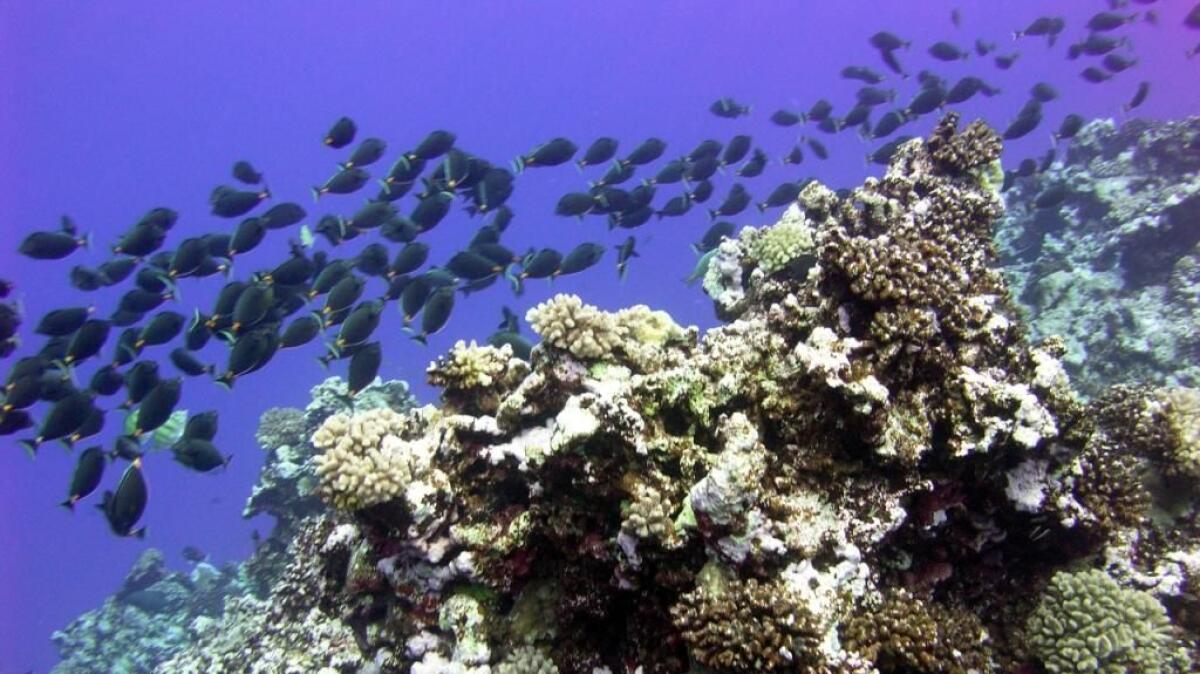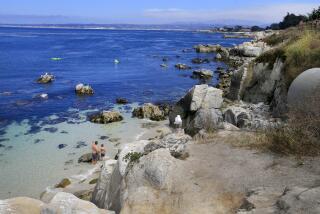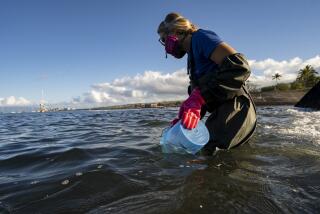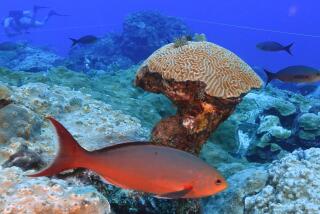Opinion: To save our oceans, we must halt human population growth

To the editor: Ayana Elizabeth Johnson and Jeff Orlowski make a compelling case regarding the world’s marine resources. (“What the Trump administration doesn’t understand about ocean conservation,” Opinion, Jan. 10)
As a lifelong surfer who has never lived more than a mile from the ocean, I heartily agree with every claim they make about the perils of overfishing and the destruction of coral reefs. I am afraid my young grandson will inherit oceans that are vast wastelands and never know the joys I experienced in the water over my 70 years.
But like many environmentalists, the authors do not address the root cause of the problem. Why is there so much overfishing? Why are the seas acidifying? Why are coral reefs on track to collapse by 2050?
All this is happening to feed and entertain people, the global population of which is increasing at an incredible rate. In 1947, there were 144 million people in the U.S. and about 2 billion globally. Just 40 years later, in 1987, the numbers were 242 million people in the United States and 5 billion worldwide. Today, 325 million people live in the U.S., and there are 7.6 billion humans on the planet.
Until we get a handle on explosive population growth, efforts at restoration and conservation will be for naught. We must provide birth control for the world. Extreme? Sure it is, but find a better answer.
Steve Switzer, San Pedro
..
To the editor: Johnson and Orlowski compare the ocean to a trust fund off which people live. They cite food security and jobs related to the fishing industry as driving factors to protect the ocean, and stress the importance of increasing the number of marine protected areas. I applaud them for that.
However, I think that they left out a much more important reason why we need to protect our ocean.
Phytoplankton are microscopic organisms that live in the upper layers of water, where they photosynthesize. In so doing, they create their own food with the energy of the sun and absorption of carbon dioxide. An important byproduct of this process is oxygen, which is released into the air.
Because approximately three-quarters of Earth is covered with water, phytoplankton and algae produce up to 70% of the oxygen we breathe. In other words, the majority of our air gets produced in the ocean. That itself should be enough of a reason to protect our waters.
Hands off our oceans — humans need to breathe.
Evi Meyer, Palos Verdes Estates
Follow the Opinion section on Twitter @latimesopinion and Facebook
More to Read
A cure for the common opinion
Get thought-provoking perspectives with our weekly newsletter.
You may occasionally receive promotional content from the Los Angeles Times.






